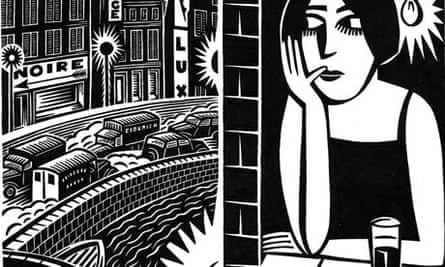 |
| George Oppen |
Specific reasons to remember George Oppen
He's a neglected but important modernist poet with an inspiring fidelity to the concrete details of the world
Billy Mills
Tue 29 April 2008
News of a collection of essays by Michael Heller on the American poet George Oppen, published this month to mark the centenary of his birth, has sent me back to this key figure in 1930s American modernism.
Oppen was, with Louis Zukofsky, Carl Rakosi, Charles Reznikoff and others, one of the founding participants in what came to be known as Objectivist poetry, although he always denied that they represented a coherent movement. Oppen's first book, Discrete Series, was published in 1934 by the Objectivist Press, a venture he ran with Zukofsky and Reznikoff. Ezra Pound wrote a preface in which he saluted Oppen as "a serious craftsman" with a unique sensibility.
This was a pretty impressive start to a career, but for a long time it seemed like the promise would never be fulfilled. Discrete Series was a response to the political and economic circumstances that prevailed in the United States in the early 1930s. Shortly after its publication, Oppen and his wife Mary, who was also a poet, abandoned artistic life for political activity and membership of the Communist party. Despite George's active service during the second world war, the Oppens were kept under FBI surveillance and by the end of the 1940s an appearance before the House Un-American Activities Committee was looming.
The Oppens decamped to Mexico, where George co-ran a furniture-making business. Towards the end of the 50s, he began writing again and in 1959 their FBI file was closed, allowing a return to New York. His second book, The Materials, appeared from New Directions[xi] in 1962, quickly followed by This in Which (1965) and Of Being Numerous, which won the Pulitzer prize for poetry in 1969.
Oppen was a compulsive reviser with an unusual method of building up versions of his drafts. Every time a line changed, he wrote or typed the new version on a strip of paper thin enough to be pasted down over the old one. As a result, his manuscripts resemble relief maps of the act of writing and rewriting. His effort, always, was to write what he called, in a poem called Psalm, "The small nouns / Crying faith". In other words, his language and poetry is tied to the concrete world of physical fact, wary of abstraction, and, in a sense that is much wider than the obvious political one, engaged. His poetry does not shun the difficult but is always concerned with clarity of expression, and in later years he fell out with Zukofsky, partly because he felt that the latter's work was veering towards the wilfully difficult for its own sake.
Oppen published three more collections and a Collected Poems during his life. In what was a bitter irony for one who paid such meticulous attention to words, he developed Alzheimer's disease, a condition that was to slowly deprive him of language over the last few years of his life. The posthumous New Collected Poems includes some previously unpublished poems from this difficult period. George Oppen died in a convalescent home in California on July 7, 1983.




















